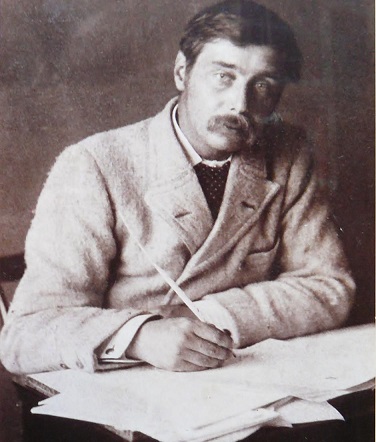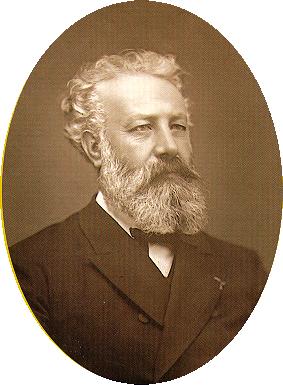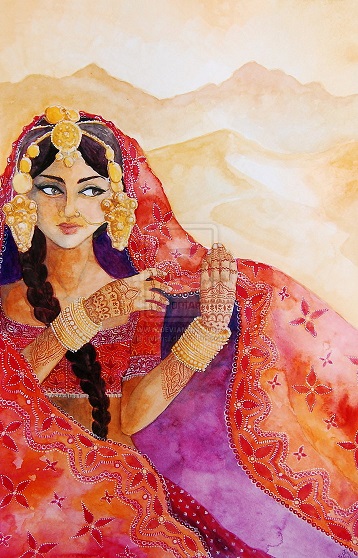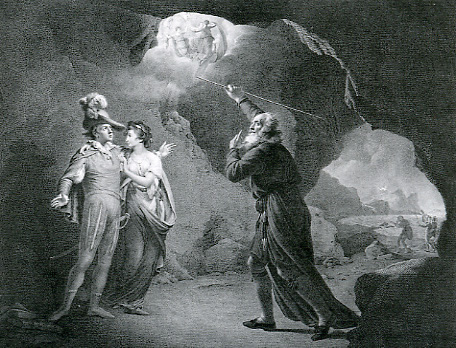
INFLUENCES, PART 2
H.G.
WELLS

H.G.
Wells (1866 - 1946), the brilliant British thinker and sci-fi/fantasy writer,
was definitely one of my biggest influences, and I suppose he is taken more
seriously than Ian Fleming, though less so than many other authors who kept
their tales more 'reality-bound.'
However, for me, his highly imaginative fantasy-medium for bringing cogent
real-world subjects before the public eye was a strength, not a weakness; the
light coming through his sci-fi prism had a special force/archetypal purity that
the unfiltered depiction of reality lacked.
Chief among the works by Wells which I admire are:
The War of the Worlds, a
powerful exposť of European colonialism and imperialism, veiled in the imagery
of a Martian invasion of the earth (how
would we like it if it were happening to us?);
The Time Machine, a brilliant
little piece exploring the division of social classes and projecting that divide
far into the future to place before our eyes a warning of the boomeranging
effect of injustice (also forcing us to think more deeply about what is the
essence of being human);
The Island of Dr. Moreau, a
masterpiece touching on the issue of hubris (Man stepping into the shoes of
God), as well as the question of whether civilization can truly be built upon
the human material (our thin layers of moral codes pitted against our primal
instincts); and The Invisible Man, an
all too familiar tale of the temptations of power, made fresh by Wells' vivid
imagination and retelling. Then,
there was the very interesting book The
Shape of Things to Come, a kind of future history envisioned by Wells
(starting from the world as he knew it in 1933), and later transformed into an
engaging screenplay by Wells, himself, for the 1936 movie
Things to Come (one of my favorites).
Wells also wrote a substantial history of the world known as
The Outline of History (1919), an
ambitious undertaking which might, today, be considered in some ways dated and
deficient, but which was nonetheless brilliantly written and filled with
knowledge, and provided the public of the day with a spectacular resource (so
much more so than van Loon's Story of
Mankind)... Wells' use of
science fiction and fantasy to create exotic but resonant-realities affecting
our perception of our real circumstances influenced me deeply as an approach to
writing. And his treatment of "the
invisible man" served as a training manual for my own use of invisibility in
The March of the Eccentrics!
In fact, I love H.G. Wells so much that I gave one of the main characters
in my book his last name!
JULES
VERNE

The
great French science-fiction Jules Verne (1828 - 1905), is another one of my
major influences. His works, which
often incorporated marvelous inventions and technologies not yet in existence,
interesting and somewhat scientific descriptions of nature, exciting travelogues
and thrilling adventures, have sometimes been described as "boyish", and
criticized in numerous other ways, as well.
But what a wealth of interesting storytelling "Father Jules" (to quote
Isaac Asimov) gave to us! He
stimulated and excited the imagination of his times with tales such
Twenty Thousand Leagues Under the Sea,
Journey to the Center of the Earth,
Off on a Comet,
Around the Moon,
Five Weeks in a Balloon, and
Around the World in Eighty Days.
Many of us are left to conclude that 'boyish literature' is not as bad as
it is made out to be; and our ranks are today swelled by the exciting new
devotees of Steampunk, who would be in a terrible quandary were it not for
"Father Jules", and the amazing legacy he gave to us of men in top hats flying
to the moon! Of course, in the character
of Captain Nemo, one of the great and
early prototypes of the mad scientist was created.
Nemo's brilliance, alienated by the hypocrisy and cruelty of the way men
live on this planet, assumed a dark edge, and this development and turning-away
from benign service to the unworthy mainstream became the basis for many
subsequent depictions of the man of genius 'gone bad', among whose number, you
will find the premier mad scientist of my own novel,
The March of the Eccentrics.
SCHEHERAZADE

Scheherazade is depicted in The
Thousand-and-One Nights (or The
Arabian Nights' Entertainment) as the bold and beautiful heroine whose
enchanting story-telling abilities mesmerize the woman-hating Persian king who
has decided to marry a new woman every night, then execute her in the morning.
(He has decided to punish all of womankind for the infidelity of a former
wife.) To put an end to this
outrage, Scheherazade marries the mad king herself, risking her life to save the
womanhood of Persia; she then binds him under the spell of wondrous tales such
as "Aladdin and the Magic Lamp", "Ali Baba and the Forty Thieves", "Sinbad the
Sailor", "The Fisherman and the Genie", and "Prince Ahmed and Periebanou", until
at last he is humanized and unable to continue with his reign of terror.
Such is the power of art. Of
course, not a single historian in the world believes there was a real
Scheherazade; she was but a "literary device" created to provide a dramatic
frame-story for the presentation of the many disparate tales of the "Arabian
Nights", actually gathered over a period of many centuries from the Arab world,
Persia, India, Egypt and elsewhere.
That aside, here is a case of a character so fully embodying a living and
breathing archetype, and raising that archetype up from the depths of our
unconscious where she has slept to the middle of our hearts where she awakens
with all of her resplendent charisma, that she has become as real to us as
anyone who ever was. For me,
Scheherazade is real.
She has influenced me with her amazing imagination, with her exciting
stories that expand the mind and resuscitate the heart which is tarnished by
limits; she has influenced me by adding colors to my sight and by making me fly
higher in my dreams; she has influenced me by coming to life,
in spite of only being a character in a
book! And thus, I have named
the main female protagonist of my novel 'Ellen
Scheherazade Abu.'
(A special thanks, here, to artist Jeni Kubicek, who kindly granted me
permission to use her beautiful painting of Scheherazade, which captures the
brilliance and allure of this spirited woman better than any other picture I
have encountered. You can see more
of Jeni's work at
https://www.facebook.com/jenikubicekart .)
WILLIAM SHAKESPEARE

Beautiful though Scheherazade may be, when speaking of influences let's not
leave out William Shakespeare, who is not, by the way, featured in the above
picture! Instead, there we see the
magician/illusionist Prospero (along with Miranda and Ferdinand) from
The Tempest.
I have included this image because even though the greatest contributions
of Shakespeare to my development as a writer have most certainly been plays such
as King Lear, Julius Caesar,
Hamlet,
Romeo and Juliet and
Macbeth, where deep and powerful
characters, filled with passion, will, or doubt rumbling from within, interact
with stunning language, The Tempest
features an appealing personality configuration which has echoes in my novel.
Of course, I am referring to the bond between the marginalized but great
Prospero and his beloved daughter Miranda (powerful conjurer and his sheltered
child) which is reflected in the relationship between Julius Abu (the mad
scientist) and his daughter Ellen.
(Before the novel is over, however, Ellen will react against her role as the
'protected daughter' and seek to become a helpful and important figure in the
world on her own.) I suppose
Shakespeare and his characters have also influenced me, to some degree, in the
development of Julius Herman Abu, himself, who I imagine in the Shakespearean
mold: a man of great emotional
power and depth and mercurial moods, a whole universe of human possibilities
clashing inside his troubled head:
joy with depression, kindness with cruelty, nobility with indecency, intense
focus with shocking dissipation... a towering man rife with 'tragic flaws', a
savior who is in dire need of healing.
I often think, if they were ever to make movies from this material, who
would play Abu, who could play Abu;
who could capture both the dramatic and comic aspects of his personality, the
full range of his complex and unstable nature?
And I can't help but think:
it would have to be someone with a
background in the Shakespearean theater.
Someone who had played Hamlet, or Lear, or Macbeth, and thereby stretched
his soul so that it could fit Abu; someone who had played Hamlet, or Lear, or
Macbeth, and thereby unleashed all
the demons of his unconscious so that they might thereafter be placed in the
service of his art. Yes,
Shakespeare is definitely required here...
And now on to the next batch of geniuses!